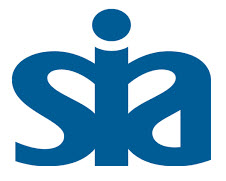
The Security Industry Authority (SIA) is a statutory organisation responsible for regulating the private security industry in the United Kingdom. It reports to the Home Secretary under the terms of the Private Security Industry Act 2001.
These are the two main duties of the SIA:
- Regulating the compulsory licensing of individuals working in specific sectors of the private security industry. At the time of writing, begin a private investigator is not one of these activities for which licensing is required.
- Managing a voluntary Approved Contracting Scheme which measures private security service suppliers against independently established assessment criteria.
Short facts about SIA
| Type | Non-departmental public body |
| Headquarter | London, UK |
| Web site | Sia.homeoffice.gov.uk |
SIA Licensing
Engaging in a licensable conduct without a license is a criminal offence. If found guilty, the individual can be sentenced to a maximum of 6 months imprisonment and/or a fine of up to £5,000.
Licensable Sectors
- Cash and Valuables in Transit (CVIT)
- Close Protection (CP)
- Door Supervision (DS)
- Key Holding (KH)
- Public Space Surveillance (CCTV)
- Security Guarding (SG)
- Vehicle Immobilisation (VI)
Licensees
Whether or not an individual working within one of these sectors must obtain a license depends on the role performed and the activity that is undertaken. For more information, see Section 3 and Schedule 2 of the Private Security Industry Act 2001 (as amended).
No license required for private investigators (yet)
The Private Security Industry Act 2001 (as amended) allows for SIA licensing of private investigators, but the SIA does not currently (2017) offer nor require such licenses. The same is true for security consultants and precognition agents.
Front line and non-front line SIA licenses
There are two types of licenses granted by SIA: front line licences and non-front line licenses.
- A front line license is required for licensable activities other than key holding activities. As proof of your front line license, you will receive a plastic card (the size of a credit card) that must be worn in accordance with applicable license conditions.
- A non-front line license is required for those who manage, supervise and/or employ individuals who engage in licensable activity. As proof of the non-front line license, a license letter is issued.Key holding activities require a non-front line license.
Qualifications
The individual applying for a front-line SIA license must prove that they are properly qualified for their job. SIA has endorsed certain awarding bodies to offer these qualifications and approve training providers.
SIA does not run training courses or award qualifications.
SIA does not approve or vet training providers.
The Approved Contractor Scheme (ACS)
As mentioned above, SIA manages the Approved Contractor Scheme (ACS).
ACS is a voluntary quality assurance scheme for private security suppliers, and only for the activities that fall under the Private Security Industry Act 2001.
The suppliers who seek approval are measured against independently assessed operational standards and performance standards, and only suppliers that fulfil the requirements are awarded ‘Approved Contractor’ status.
ACS is based on ISO9001 and the European Foundation for Quality Management (EFQM) Excellence Model.
The assessment is normally not done directly by ISA. Instead, the assessment is carried out by one of the several assessing bodies appointed by SIA.
To maintain approval, a previously approved contractor must re-register every year and have its approval renewed every three years.
Wrongfully claiming to be approved is an offense under section 16 of the Private Security Industry Act 2001.